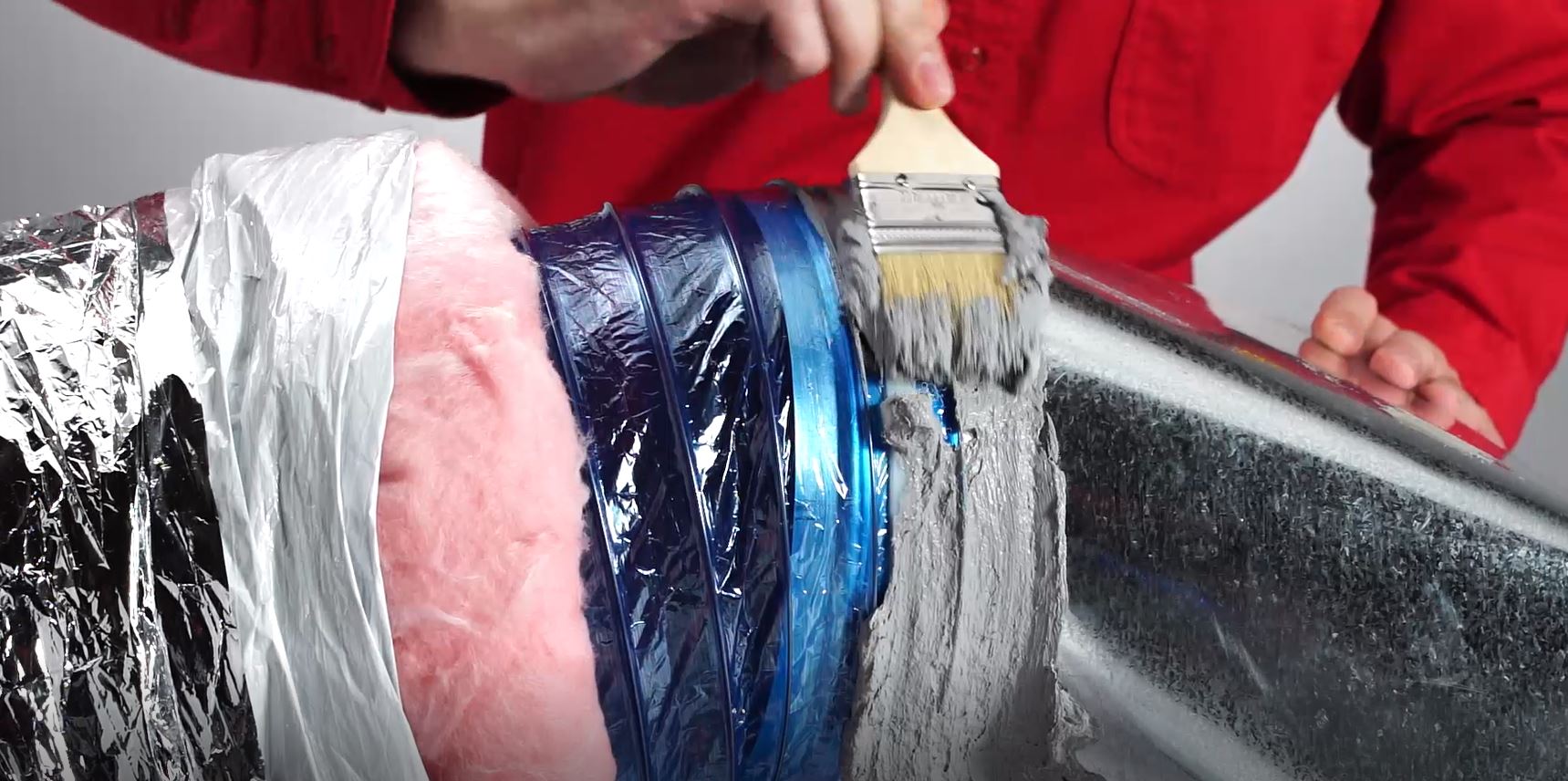Specialty Spotlight: Indoor Air Quality to Reduce Allergens

Air duct repair can reduce the presence of allergens in your home. Photo: Service Champions ©2021
Pollen is relentless in the spring throughout the Bay Area. If you suffer from seasonal allergies, you’re probably familiar with the discomfort that arrives with the warmer weather. While there’s little you can do to control the presence of pollen outdoors, you do have options for limiting your exposure to allergens indoors. In this article, we’ll explore how you can improve your home’s air quality to alleviate allergy symptoms.
Air Quality Home Inspection
HVAC companies that specialize in air quality products and services can perform a home inspection to determine if there are any underlying problems with your ductwork. Your HVAC system does more than maintain your home’s temperature—it also cleans and recirculates the air in your home, which is essential during allergy season. Old, damaged ductwork or blocked ventilation returns can lead to poorer home air quality. An HVAC technician can perform an infiltrometer test to quickly pinpoint any leaks in the ductwork. Once located, the technician will isolate, repair and reseal the damaged areas. A home inspection is an important first step in determining the scope of your home’s air quality issues.
Air Duct Cleaning to Reduce Allergens
Regular HVAC maintenance plays a crucial role in reducing the amount of dust, pollen and other allergens in your home’s air. Remember to replace air filters as recommended and regularly dust and vacuum your home, preferably with a HEPA vacuum. Additionally, you can lower the presence of allergens by having a professional do a thorough cleaning of your home’s ductwork. This will remove accumulated dust and prevent these particles from getting into your home’s air.
Indoor Air Quality Applications
Aside from physical repairs to your home’s ductwork, an HVAC company may recommend additional products to help maintain proper indoor air quality, such as an indoor air quality application (IAQ). This technology uses sensors that measure your home’s air quality in real time, tracking levels of numerous pollutants, large and small particulate matter, and humidity. When levels go beyond the recommended range, smart technology will automatically adjust your home’s HVAC settings to compensate.
Whole House Air Filters for Allergies (Air Purifiers)
Your home’s HVAC system requires an air filter that, if changed regularly, traps dust and pollen. Some allergy sufferers also see a benefit after installing additional filtration systems. Sometimes called air purifiers, these systems rely on different technology than standard air filters and must be professionally installed to work with the home’s existing HVAC system.
Electronic air filters, also known as electrostatic air filters, emit an electrical charge that attaches to any particles present in the air as they pass through the filter. A magnetic plate on the other end of the filter collects these charged particles and keeps them from entering your home’s airflow. These filters can trap particles that are too small to be captured by standard HVAC filters, and they’re known for being especially effective against smoke.
Ultraviolet (UV) filters are designed to neutralize microorganisms such as viruses, bacteria and mold. As air moves through the ductwork, the filter’s UV light sterilizes any germs that pass through. UV filters have become increasingly popular for both homes and offices since the COVID-19 outbreak.
It’s important for allergy sufferers to be aware that these air filter options only reduce the presence of allergens circulating in the air, not on surfaces. Regularly vacuuming carpets, upholstery and window treatments is also necessary for keeping allergens in check.
Use Diamond Certified Resource to find top rated companies.
Local, Top Rated Diamond Certified Companies Related to Your Topic
Marin County HVAC Contractors
San Francisco HVAC Contractors
Santa Clara County HVAC Contractors
Alameda County HVAC Contractors
Solano County HVAC Contractors
Related Articles
The Homeowner's Guide to Heating, Cooling & Air Quality
Get Expert Advice From Owners of Top Rated Local Companies
Become a Diamond Certified Preferred Member (Always Free)